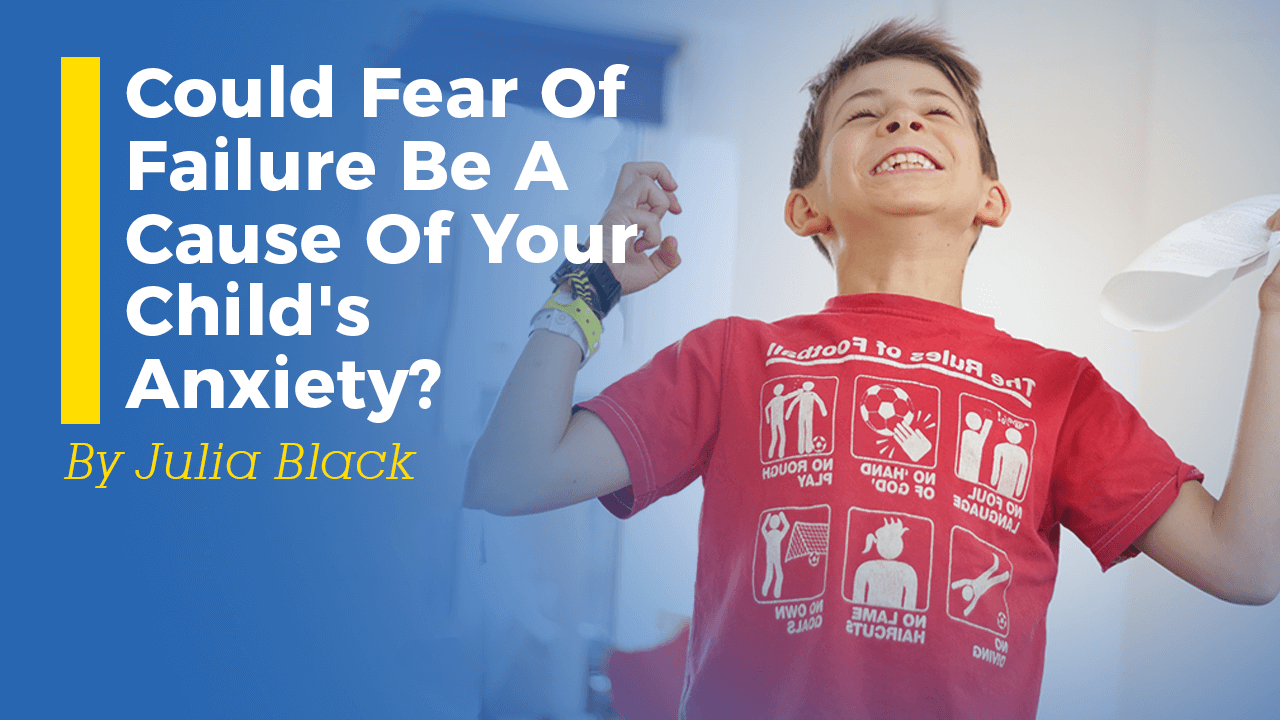
Could Fear Of Failure Be A Cause Of Your Child's Anxiety?
Dec 29, 2017Fear of failure seems to be an increasing problem for our children, and in particular for those considered ‘more able’ academically. They don’t want to get things wrong and can get stuck always learning within their safe zone.
At Explorium we talk about learning out towards our edges which inevitably means getting a lot wrong! In fact we are so upfront that we will be making mistakes together, that we learn about neurons, synapses and neuroplasticity! Once our children understand the basic neuroscience behind what is going on in their brains when they get something wrong, they relax and begin to see failure as part of the adventure towards success.
But it doesn’t always come easy! The problem many of our children face today is they may not be getting enough challenge. If they are able (or more than able!) to do the work that is presented to them then they are probably far too comfortable with getting things right and are not building up emotional resilience needed to get things wrong.
Perhaps their reading age is way beyond their actual age? Maybe they are in the top spelling group and always get 10/10? In maths they be rushing ahead with their times tables and love all those ticks in their workbooks but get extremely upset (disproportionately so) when they get a cross against something. Their fear of failure may be getting so strong that they are developing strategies to avoid it rather than developing effective strategies to tap into their full learning potential.

Meet Alfie!
He came to us because his parents realised that, although he is incredibly academically and artistically gifted in many ways, he would get frustrated and angry when he couldn’t do something.
"Alfie wouldn't try new things. If he thought he couldn't do it, he wouldn't do it." Zoe, Alfie's mum.
During our initial consultation I presented Alfie with a task that involved a bit of problem solving. He did everything to avoid doing it. He began to get frustrated, walk around the room, and started looking anxious. But I persisted and encouraged him. When he begin to try I asked him how he was feeling. He replied ‘my brain feels like scrambled eggs.’
I love this description! I am sure we can all confess to those moments when our brains turn to mush. If we haven’t learned how to organise our thinking or to employ effective strategies to move through a problem, then it can feel like a scary place to be, even for us as adults.
We have worked with a lot of children from local schools about overcoming their fear of failure and there always seem to be a common thread that comes up when we ask them why they don’t like making mistakes.
1) Because people will laugh at you.
2) If we are the people who always get it right what happens when WE get it wrong?
3) Maybe people will realise I’m not as clever as they think I am.
It seems our children are getting really good, very early on in life, at protecting themselves from external judgement by their peers, teachers and parents.
The good news is that it is remarkable how quickly our children can embrace making mistakes when we give them permission to do so. That isn’t to say that moving from a fixed to a growth mindset happens overnight - it doesn’t. For many of us it may take a lifetime! As parents we can be so busy making sure our children taste success that we can overlook the importance of legitimising failure and more importantly actually nurturing failure.
So if your child is showing signs of fearing failure, which can present itself as low level anxiety, then here are some simple steps you can take immediately:
1) Start a conversation in your family about why mistakes can be good for you.
2) Redefine success - broaden out what it means to succeed and include failure in that definition.
3) Start praising the effort your child puts into something rather than the outcome. Too much emphasis placed on external motivation - star charts, golden hour, smiley face stickers, can reinforce that it is the end result that is important rather than the hard work (and mistakes made) that should be valued.
NB: If you think there are other factors underlying your child’s anxiety you should seek advice from your health professionals.



